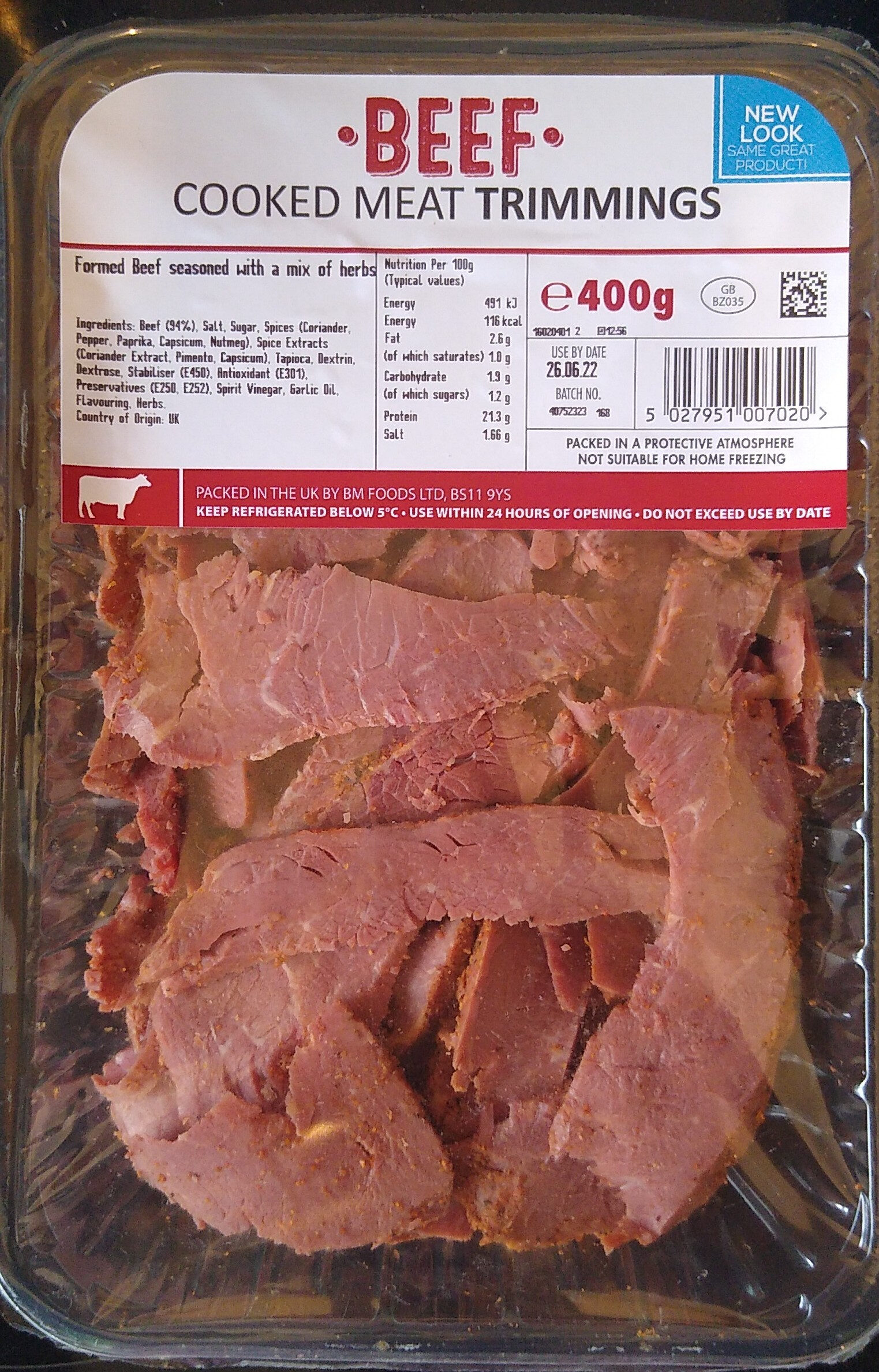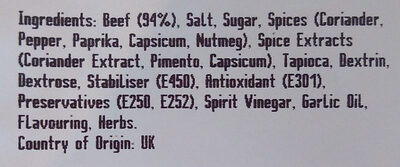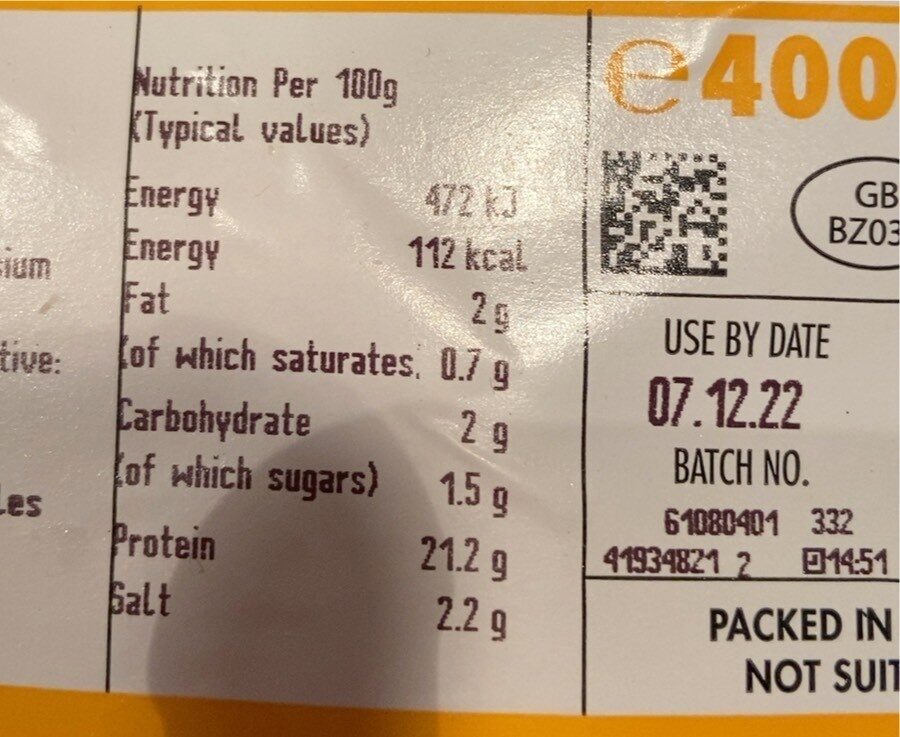Turkey meat trimming - BM Foods LTD - 400 g
This product page is not complete. You can help to complete it by editing it and adding more data from the photos we have, or by taking more photos using the app for Android or iPhone/iPad. Thank you!
×
Barcode: 5027951007020 (EAN / EAN-13)
Quantity: 400 g
Packaging: Plastic
Brands: BM Foods LTD
Categories: Meats and their products, Beef and its products, Meats, Prepared meats
Origin of ingredients: United Kingdom
Manufacturing or processing places: Great Britain
Traceability code: GB BZ035
Stores: Aldi
Countries where sold: United Kingdom
Matching with your preferences
Environment
Packaging
Transportation
Report a problem
Data sources
Product added on by mjkaye
Last edit of product page on by talisonjaffe.
Product page also edited by dandare1980, ecoscore-impact-estimator, kiliweb, openfoodfacts-contributors, packbot, roboto-app, waistline-app, wardrobe, yuka.sY2b0xO6T85zoF3NwEKvlhZBCNDlgTvhOzrlkmOR5NPfIKW4PM9q2brVMqs, yuka.sY2b0xO6T85zoF3NwEKvlmFmY_PmuDycLh_jnhG7meiLfsbRUMtS0rqmKas.









